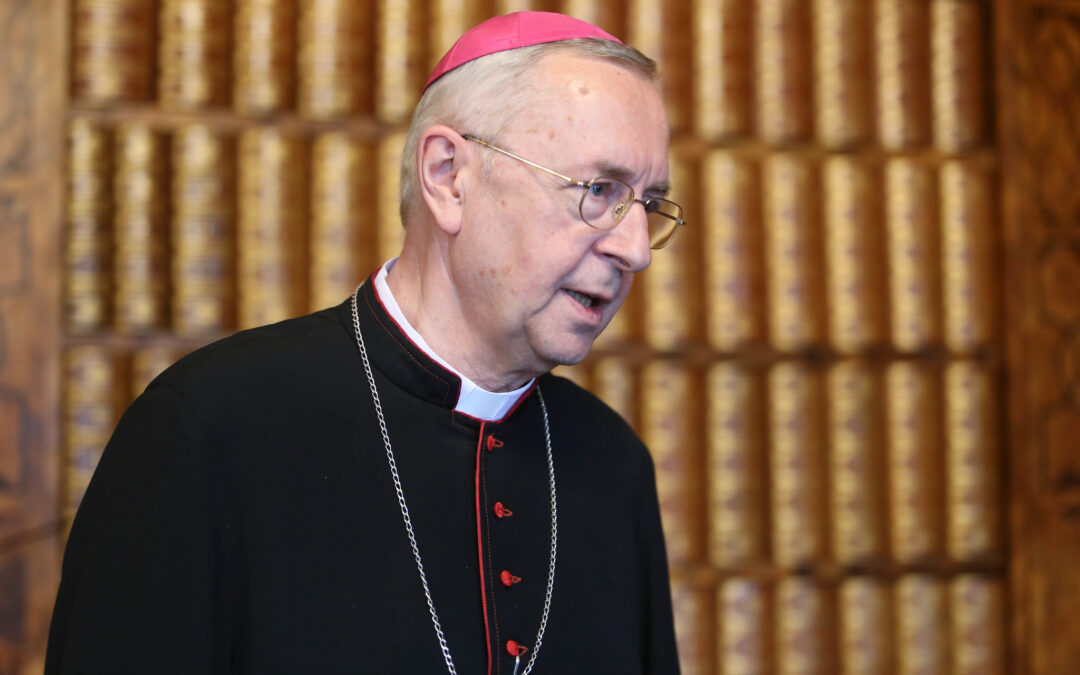The head of Poland’s Catholic church has criticised the government over its plans to raise taxes on priests as part of its new economic programme.
In a letter addressed to Prime Minister Mateusz Morawiecki, Archbishop Stanisłąw Gądecki – president of the Polish Episcopal Conference (KEP) – said that the government’s proposals for tax reform have not been favourably received by clergy, reports Puls Biznesu.
“I regret to state that, despite the fact that the proposal concerns the legal situation of the clergy, neither the Catholic Church nor other religious associations were included among the dozens of entities with whom the government held public consultations,” he added, quoted by Wprost.
Gądecki noted that, according to the 1993 concordat between the Vatican and Poland, the Polish government should consult the church on any legislative changes that affect its material situation.
Earlier this year, the government launched its “Polish Deal”, a wide-ranging raft of policies that will provide more generous social benefits and boost investment, but also increase taxes for some groups.
Among them are priests, who would have to pay higher contributions as they could no longer deduct health insurance from their tax base, which would raise dues by 7.75%, reports Wprost. Members of the clergy currently pay a lump sum tax, like small businesses and craftspeople.
Gądecki’s letter to the prime minister contains a legal opinion from Piotr Stanisz, a priest and professor of law at the Catholic University of Lublin (KUL). Stanisz proposes that higher healthcare contributions could be paid from the Church Fund, a state-financed fund that provides money to support Catholic clergy and certain church-linked activities.
The government has insisted that the Polish Deal will benefit most Poles, and that tax rises will only affect those who can afford it. Justifying the plans, Morawiecki argued that the current tax system is “unfair” because “the rich use our roads and schools” but “do not pay [an amount] appropriate to their earnings”.
“The Polish Deal is our way to build a welfare state,” he said, adding that the package would put Poland on its “path to the European standard of living” and give it a “chance for civilisation promotion to the first European league”
But the issue has caused increasing political conflict. Earlier this month, the ruling coalition collapsed after a junior partner left following criticism of the new taxes, which it said would “hit millions of hard-working Poles”.
Yet there are also signs that Poles are becoming increasingly opposed to the privileged status the Catholic church enjoys in relations with the state.
A report this month by CBOS, a state research agency, showed that the proportion of the public who say the concordat between the Vatican and Poland is unnecessary, and that the state should not favour any Christian denomination, rose from 40% in 2019 to 49% today.
Earlier this year, an opposition party, Poland 2050 (Polska 2050), set out proposals for ending what it called the “corrupting” links between church and state. This would including abolition of the Church Fund and reducing the episcopate’s control over the teaching of religion in public schools.
Main image credit: EpiskopatNews/Flickr (under CC BY-NC-SA 2.0)

Maria Wilczek is deputy editor of Notes from Poland. She is a regular writer for The Times, The Economist and Al Jazeera English, and has also featured in Foreign Policy, Politico Europe, The Spectator and Gazeta Wyborcza.




















